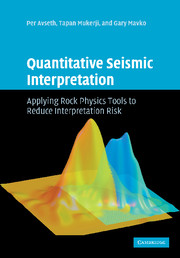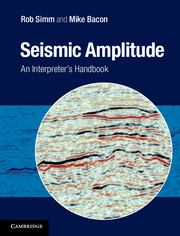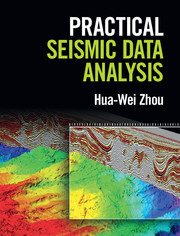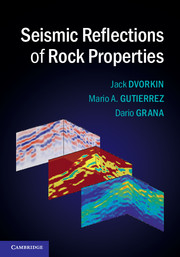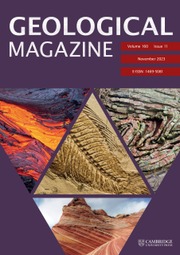Quantitative Seismic Interpretation
Quantitative Seismic Interpretation demonstrates how rock physics can be applied to predict reservoir parameters, such as lithologies and pore fluids, from seismically derived attributes. The authors provide an integrated methodology and practical tools for quantitative interpretation, uncertainty assessment, and characterization of subsurface reservoirs using well-log and seismic data. They illustrate the advantages of these new methodologies, while providing advice about limitations of the methods and traditional pitfalls. This book is aimed at graduate students, academics and industry professionals working in the areas of petroleum geoscience and exploration seismology. It will also interest environmental geophysicists seeking a quantitative subsurface characterization from shallow seismic data. The book includes problem sets and a case-study, for which seismic and well-log data, and MATLAB® codes are provided on a website (http://www.cambridge.org/9780521151351). These resources will allow readers to gain a hands-on understanding of the methodologies.
- The authors have extensive experience of teaching courses in this area in universities and to the petroleum industry
- Provides practical advice on how to apply these new technologies while avoiding common pitfalls
- Includes resources designed to give readers a hands-on understanding of the techniques
Reviews & endorsements
"...should prove valuable as a resource for educators...has a little something for everyone." -EOS Transactions, Carl H. Sondergeld, University of Oklahoma, Norman
"I found the book to be very useful in expressing the field of rock physics and how to apply it to seismic interpretation. The authors provide very useful guidelines to the main points by highlighting important points and pitfalls within the text and bulleted conclusions at the end of each chapter...does a good job at introducing the various aspects of the quantitaive interpretation, presenting a balanced approach, and giving a workflow that could be used for your own projects." - The Leading Edge, David C. Bartel
"This is undoubtedly one of the most exciting seismic reference texts to have been written for the practicing petroleum geophysicist in some time."
Christopher D. Jauer, The Canadian Mineralogist
"This excellent book integrates rock physics, sedimentology, and stochastic inputs for seismic inferences to reduce risks in petroleum exploration and production. It is a must-read for graduate students, academics, and professionals in petroleum and seismic geosciences. I strongly recommend it for purchase by librarians and individuals." AAPG Bulletin B.K. Sahu, Indian Institute of Technology
Product details
July 2010Paperback
9780521151351
408 pages
241 × 170 × 15 mm
0.68kg
171 b/w illus. 110 colour illus.
Available
Table of Contents
- Preface
- 1. Introduction to rock physics
- 2. Rock physics interpretation of texture, lithology and compaction
- 3. Statistical rock physics: combining rock physics, information theory, and statistics to reduce uncertainty
- 4. Common techniques for quantitative seismic interpretation
- 5. Case studies: lithology and pore-fluid prediction from seismic data
- 6. Workflows and guidelines
- 7. Hands-on
- References
- Index.

